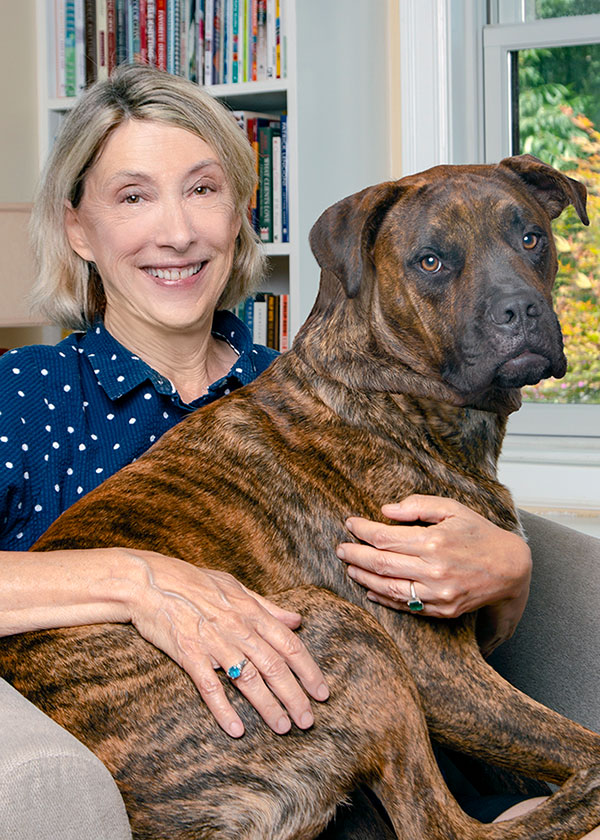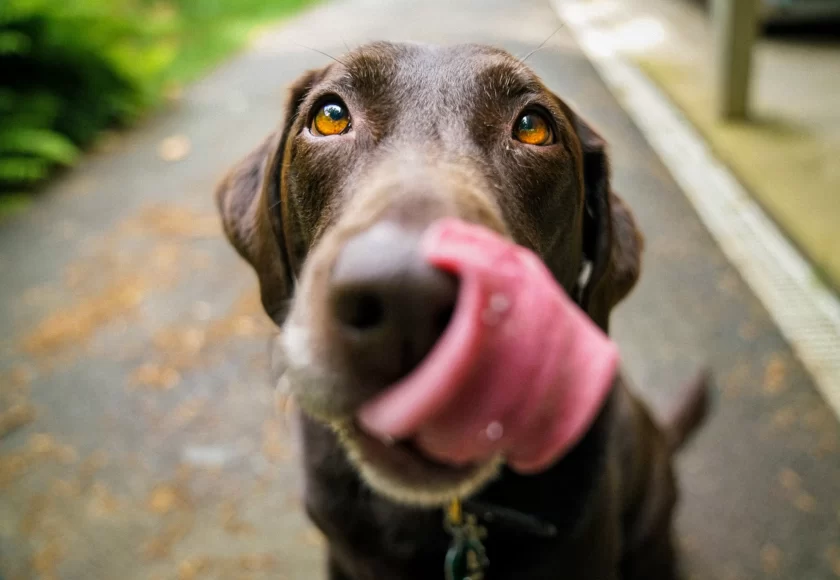Individuals with disabilities rely on their service dogs for independence and quality of life. Just the same, service dogs rely on their recipients as caretakers to provide the daily necessities, love, and attention they need for a happy, healthy life. At Putnam Service Dogs, we understand just how important it is for recipients and volunteer puppy raisers to give back to their service dogs. In this blog, we’ll share more about what that looks like, including general care, feeding, grooming, veterinary care, exercise, and ongoing training.
Understanding the Needs of Service Dogs
Service dogs are carefully trained to perform specific tasks for their recipients depending on their unique needs. Although individuals with disabilities love their service dogs in the same way humans love the companionship of their pets, it is important to understand the basics of service dog care and how it differs from general pet care. Responsible ownership involves caring for service dogs according to their working conditions, breed, size, and more.
Feeding, Grooming, and General Care
When caring for a service dog, it is important to pay close attention to dietary, hygienic, and medical needs. Just as recipients rely on their service dogs for day-to-day assistance and companionship, service dogs rely on their companions and others for their health and well-being.
Well-Balanced Diet
A service dog needs an excellent diet for its size, age, and activity level to maintain healthy muscles, joints, and overall health. Putnam Service Dogs measures each dog’s food as their weight is closely monitored. A heavy dog will work a shorter life than a dog whose weight is proper to their form. “Feel their ribs when you pet them, but not see them” is the guideline we use. 80% of American dogs are overweight. Dogs DO have waists, just like people. We monitor the weight of all of our dogs — pups in training, and working dogs — very closely. We use high quality food (no scrimping) that is safe (none or few recalls) that the dog clearly thrives on.
Water
Service dogs should have separate food and water dishes that are cleaned each day. Recipients should provide their animals with an ample supply of cool, fresh water throughout the day. Bottled water and a portable water dish are essential for long outings.
Washing a Service Dog
A service dog needs to be clean when taken out in public with his person. We recommend grooming the dog every 12 weeks. If the dog is dirty, greasy, or has an odor, for the sake of the people around the dog, the dog should be washed sooner than 12 weeks.
Grooming
Putnam Service Dogs has their pups in training groomed every 12 weeks and recommends recipients continuing this practice. A groomer is another set of eyes to detect issues, such as an odd bump on the dog, ear infections, nail or teeth issues, etc. They’ll trim the nails and clean the ears and anal glands. Brushing a dog’s coat, once they’re used to the brush, can build a relationship between the dog and its person. The dog understands the person is caring for the dog and loving him. The person is also improving the dog’s appearance, which is essential for the dog to go out in public. Our service dogs should look well groomed and clean ALWAYS when in public.
Dental Care
Tartar on a dog’s teeth not only causes obnoxious bad breath, but negatively affects a dog’s health and lifespan. Once a dog hits age 2, tartar build-up becomes an issue and dental hygiene has to be practiced diligently. A veterinarian can recommend the best dental hygiene practices, depending on the breed and age of the dog. Service dogs are rare, valuable dogs, and deserve attention to their dental hygiene. Any cracked teeth, sores in the mouth should be brought to the attention of the veterinarian immediately to minimize later issues.
Veterinary Care
Veterinary care is crucial for all service animals. Like other dogs, service dogs should see their veterinarians at least once per year for an annual checkup. This checkup consists of a standard wellness examination and physical. Service dog organizations that raise dogs from puppyhood ensure that vaccinations are up-to-date prior to placement, and these vaccinations are kept up-to-date during annual vet visits. Service dogs, as rare, valuable dogs, should return to their veterinarians as soon as concerns about their health arise. They need consistent, timely doses of flea, tick, and heartworm medications to protect their health.
Mental & Physical Stimulation
Service dogs require proper exercise in order to stay in shape. Adequate exercise helps ensure that service dogs are able to relax during their downtime, which keeps them more focused when they’re actively working. Different breeds are naturally more active than others, and some service dogs’ jobs are more physically demanding than others. Recipients should consider these things when determining the proper amount and intensity of daily exercise.
Mental stimulation is also essential in service dog care because it enhances dogs’ overall wellbeing. It can come in many forms. Petting and talking to a service dog provides social stimulation, while environmental enrichment, such as visiting a new place, allows dogs to experience new sights, sounds, and smells.
Do Service Dogs Get to Play?
Service dogs are encouraged to play at home during their “off-duty” hours. Just like any other dog, service dogs play fetch, chase other animals, bark, and play with puzzle toys when it is appropriate for them to do so. These activities serve as a form of daily physical exercise. Service dogs should never be allowed to play or mingle with other dogs while they are working due to the potential for distraction, but most service dogs thrive when allowed to play and run with other carefully selected dogs during their downtime. Most service dog schools forbid taking a service dog to a dog park as there’s no screening of the other dogs there.
Service Dog Training Never Ends!
Service dogs are extensively trained. They are evaluated for suitability, then adopted as puppies and trained for at least least two years. This early training includes basic obedience, socialization, house manners, public access training, and initial service dog task training. After being matched with a recipient, they receive another four to six months of specialized task training to learn how to assist their person. Recipients are also trained to understand their dogs’ body language, communicate effectively, build a trusting bond, and become adept handlers of the dog.
It is essential to reinforce these skills frequently in order to maintain a healthy, loving relationship and function as an effective service dog team. At Putnam Service Dogs, we say, “Use it or lose it!”
Service Dogs Need Emotional Care, Too!
Although service dogs are working dogs who play incredibly critical roles in their recipients’ lives, the importance of the emotional bond between dogs and their raisers, trainers, and recipients cannot be understated. A mobility dog, for example, offers invaluable support to a recipient and may improve their quality of life tenfold, but it is important to remember that the people in the dog’s life also offer support through attentive care and plenty of love. When a dog is stressed out in a situation, the dog’s person immediately removes the dog, or distances the dog, rather than forcing the dog to remain there.
Service dogs are not just working dogs. They are carefully selected and adopted from local shelters based on their potential, temperament, and skills. Proper service dog care involves working with the animal’s traits and nature, then matching them with recipients based on need, personality, and emotional bond.
A Service Dog Organization Focused on Changing Lives
Putnam Service Dogs understands that caring for a service dog involves much more than diet, exercise, and hygiene. Although these things are vital to a dog’s health and wellbeing, we believe that emotional support, relationships, and bonds are equally important to long-term success.
To apply for a service dog, learn more about service dog care, or find out how you can help in our life-changing mission of adopting, raising, training, and matching incredible service dogs to recipients who need them, visit the Putnam Service Dogs website.
Sources:
- American Kennel Club, Service Dog 101: Everything You Need to Know
- Journal of the American Animal Hospital Association, 2021 AAHA Working, Assistance, and Therapy Dog Guidelines
- New Life K9s, Caring for a Service Animal: 5 Things to Know
- Therapy Pet, Best Diet for Dogs that are Service Animals






